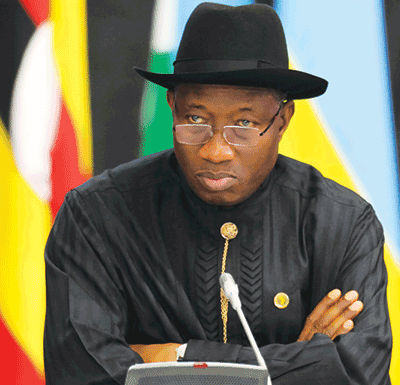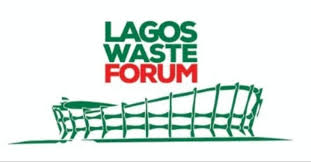BEING THE TEXT OF PRESS CONFERENCE ADDRESSED BY COALITION OF PROGRESSIVE POLITICAL PARTIES (COP3) IN RESPONSE TO THE POSTPONEMENT OF THE GENERAL ELECTION BY THE INDEPENDENT NATIONAL ELECTORAL COMMISSION, INEC, HELD ON MONDAY, FEBRUARY 9TH, 2015 AT NO.4 PARAGUAY CLOSE, MAITAMA, MINISTERS HILL, ABUJA.
The Coalition of Progressive Political Parties is deeply disappointed by the decision of the Independent National Electoral Commission, INEC, to postpone Nigeria’s general election, scheduled to commence of February 14th, 2015 thirteen months ago. The postponement came in spite of the reaction of Nigerians rejecting the idea when it was first mooted in the UK by Col Sambo Dasuki (Rtd), National Security Advisor to President Jonathan, about three weeks ago.
2. It will be recalled, the first reason given for the postponement of the election by Col Dasuki was the low number of distribution and collection of Permanent Voters Cards and the fear of disenfranchisement of eligible voters. When it became clear, from the numbers released by the Independent National Electoral Commission that this reason will not fly, the NSA came up with another reason barely a day before the National Council of State was to meet to consider the earlier reason given in support of the postponement. This time around, the NSA disingenuously offered a different reason totally unrelated to the first: “New developments” related to the insurgency raging in the North East and the inability of the armed forces to provide security for the election arising therefrom. The NSA, then, on behalf of the Service Chiefs, asked INEC to “reschedule” the elections for at least the next six weeks in the first instance, to enable the armed forces secure the areas affected by the insurgency for the elections to hold.
3. Both the first and the second reasons advanced by the NSA cannot stand the test of scrutiny for the following reasons:
a. In its fortnightly meeting with political parties and its public statements, INEC had repeatedly and consistently expressed its readiness to conduct the elections as earlier scheduled on the basis of the Permanent Voters Card distributed and collected and the totality of its state of preparedness to conduct the election up as recent as one week ago. According to INEC, 96% of the PVCs have already been produced and distributed across the 36 states and the FCT while the rate of collection stood at about 68% across board. The balance of 4% had also been produced and was being distributed for collection before the election was to commence. In the history of Nigeria’s election, there was never a time the nation recorded anywhere up to 60% of voter turn out.
b. The insurgency in the North East had raged for over five years and the armed forces under its Commander-in-Chief has been on the retreat in the last one year leading to the loss of a total of 24 Local Government Areas to the insurgents in Adamawa, Borno and Yobe States. These constitute 3% of the total number of 774 LGAs in the country that are safe and not threatened by insurgents and therefore not in any security zone. INEC had already designed a plan to enable over one million Internally Displaced Persons from these 24 LGAs to cast their votes, which plan was presented to and approved by stakeholders from the areas concerned as recent as mid January, 2015.
c. The National Council of State whose members include former Heads of State, Presidents (who were chief security officers of the nation) and army generals who fought wars to keep Nigeria one had in their wisdom decided not to advise INEC to postpone the election on the basis of the case made to it by the NSA on behalf of the Service Chiefs. If the security situation in the North East was so dire as to threaten the conduct of the election, these patriotic leaders would not have advised INEC to engage in further consultations. They would have promptly advised for the postponement of the election there and then. After all, elections have been known to hold in war-torn countries such as Afghanistan, Democratic Republic of Congo, Egypt, Iraq, Liberia, Pakistan, Sierra Leone, Syria etc and their armed forces never offered an excuse about inability to provide security for the elections in those countries.
d. In the last four years, Nigeria had spent upward of N4.4trn on security, most of it spent in the operation agains Boko Haram in the North East. It is therefore untenable and unacceptable for the National Security Advisor and the Service Chiefs to offer insecurity as an excuse for their inability to provide complimentary support to the police so the elections could hold as earlier scheduled. This failure ultimately is the failure of the Commander-in-Chief, who is also a candidate in the election and who may have a vested interest in making sure the election does not hold as scheduled.
4. After failing to convince the National Council of State on both counts, the Council advised INEC to consult other stakeholders and take a decision on wether to proceed with the election or to postpone. Among the stakeholders consulted by INEC were registered political parties, Civil Society Organisations and Resident Electoral Commissioners from the 36 States of the federation and the FCT. Of the 26 political parties consulted by INEC, 14 supported the idea of postponement, 10 supported conducting the elections as earlier scheduled, one abstained and another sat on the fence. Over 100 civil society organisations under the auspices of The Situation Room consulted by INEC rejected the idea of postponement while 21 of the 37 Resident Electoral Commissioners also did the same. If the purpose of the consultations was to sample the opinion of stakeholders and feel the pulse of the electorate, the message would have been made clear to INEC that postponement was not the way to go. In spite of this, INEC went ahead and postponed the elections against the wish of majority of Nigerians and stakeholders for reasons best known to it.
With the elections now postponed, the Coalition of Progressive Political Parties (COP3) wish to state as follows:
0. INEC, the NSA, the security forces and the President, Commander-in-Chief of the Armed Forces have a responsibility to ensure the general election holds on the rescheduled dates and must ensure that the new dates are not rescheduled again, under any circumstance. Similarly, the handover date of 29th May 2015 is non negotiable and must remain sacrosanct as any attempt to tamper with it will amount to truncating our democracy and putting the peace, unity and political stability of our nation at risk.
1. The composition of the current INEC leadership must not be undermined or tampered with as this will constitute a deliberate attempt to undermine the election itself and influence its outcome
2. We call on all Nigerians to accept the new election dates in good faith in spite of the provocation and the unease which the rescheduling has caused. We must put the interest of the peace, unity and stability of Nigeria ahead of any other consideration and must not give its detractors an excuse to plunge our nation into chaos
3. We appeal to our members and supporters to remain calm and law-abiding and not do anything or take any action that may lead to the breach of the peace.
4. We call on all Nigerians to remain vigilant and committed to the change they have worked for by ensuring they use the opportunity of the postponement of the election to mobilize their communities and ensure every registered voter collects their Permanent Voters Card. Those who have already collected their PVCs must ensure they keep them in a safe place as it is the only instrument they can use to effect the change they yearn for and eminently deserve.
Thank you.














